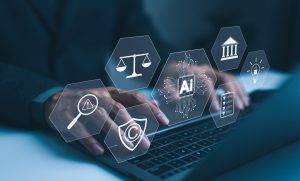The digital age has brought about many changes in how we live our lives, many of them positive, but it has also created new legal issues that are challenging lawyers around the world. In this article, we’ll be exploring the legal implications of the digital age, and how they are being addressed by the legal system – read on to find out more.
Privacy
One of the most significant legal implications of the digital age is the issue of privacy; with the vast amount of personal data that is collected and stored by companies, governments, and other entities, there is a growing concern about the protection of that data. The legal system has responded to this concern by enacting laws and regulations to protect individuals' privacy rights. For example, the European Union's General Data Protection Regulation (GDPR) aims to protect individuals' data and give them control over how that information is used.
Intellectual Property
Another legal issue that has arisen as a result of technological advancement is the question of who owns intellectual property rights. With the ease of copying and distributing digital content, there is a growing concern about the protection of copyrighted material. In the UK, several different laws provide a framework for dealing with copyright infringement, but the challenge presented to artists by the rise of the internet looks like it’s here to stay.
Cybersecurity
Cybersecurity is another area where the intersection of law and technology is becoming increasingly important. Due to the rise of cybercrime, there is a growing need for laws and regulations to protect against these threats, particularly as a huge number of individuals find themselves a victim of online financial crime every year – luckily, some of the best solicitors Dungannon has to offer to do incredible work in the legal space for victims of crime, but the challenge of increasing cybersecurity threats highlights an important question – what does security look like in the digital age?
Artificial Intelligence (AI)
The use of artificial intelligence (AI) in various fields is another area in which the law is becoming a crucial player. As AI systems become more advanced and sophisticated, there is a growing concern about their impact on society and the legal system. For example, there are concerns about the potential for bias in AI systems, which could result in discrimination against certain groups of people, as well as the potential for AI systems to replace human decision-making in areas such as criminal justice.
Free Speech
Finally, the rise of social media and other online platforms has also created new legal issues related to free speech and defamation. By developing new laws and regulations that aim to balance the right to free speech with the need to protect individuals' reputations and prevent the spread of false information, the legal system has already made big strides. But, going forward, the issue of free speech will continue to dominate social and political conversations.
Ultimately, the intersection of law and technology is a complex and rapidly evolving area that presents many legal challenges, but the legal system is continually adapting to these by enacting new laws and regulations, as well as developing new frameworks to address emerging issues. As technology continues to advance, the legal implications of the digital age will likely continue to shape the legal system for years to come.
Related: Lawsuit Claims AI Chatbot Contributed to Teen's Suicide





















